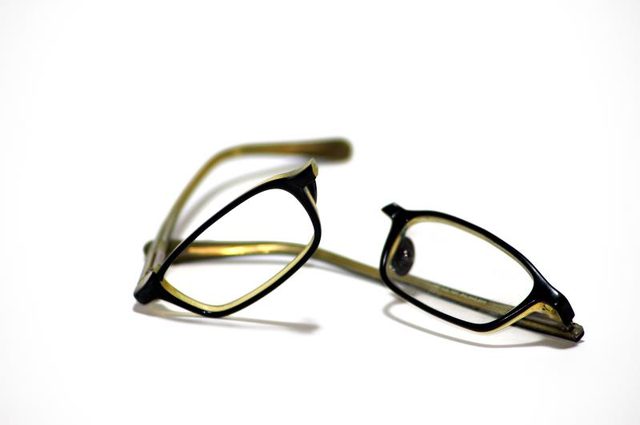Friday 21st October 2016
You might remember a post from earlier this year about museum pranks, and a case of mistaken identity. A pair of ordinary eyeglasses were left on the ground near a blank wall in an art gallery, and patrons automatically assumed that they were some piece of modern conceptual artwork, even going to so far as to carefully photograph the piece.
According to a recent study by researchers at Erasmus University in Rotterdam, there's a very good reason for this hilarious misunderstanding: the way we perceive ordinary objects changes on a neurological level when we are told that they are 'art'.
Noah van Dongen, one of the researchers conducting the study at Erasmus University, explained some of the results of the study: "When we think we are not dealing with reality, our emotional response appears to be subdued on a neural level. This may be because of a tendency to 'distance' ourselves from the image, to be able to appreciate or scrutinize its shapes, colours, and composition instead of just its content. We know that our brains may have evolved with 'hard-wired' mechanisms that allow us to adjust our response to objects depending on the situation."
"What this work indicates, is that Kant's two century old theory of aesthetics, where he proposed that we need to emotionally distance ourselves from the artwork in order to be able to properly appreciate it, might have a neurological basis and that art could be useful in our quest to understand our brain, emotions, and maybe our cognition," van Dongen continued.
Interestingly enough, the study went on to explore whether or not these effects could be replicated when study participants were shown examples of still images and told that they were from either typical films or documentary films. When the images were labelled as from a documentary film, the neurological changes were reversed, indicating that the role of context in assessing our emotional reaction to imagery is more powerful than anticipated.
On reflection, though, it seems that a lot of this kind of information is already well known to critical theorists and philosophers, and that perhaps the world of neurobiology would be much better off taking a more interdisciplinary approach to problems of cognition - or at least that science students would benefit dramatically from a broader range of philosophy coursework than is currently common.
Posted on October 21st 2016 on 06:27pm
 You might remember a post from earlier this year about museum pranks, and a case of mistaken identity. A pair of ordinary eyeglasses were left on the ground near a blank wall in an art gallery, and patrons automatically assumed that they were some piece of modern conceptual artwork, even going to so far as to carefully photograph the piece.
You might remember a post from earlier this year about museum pranks, and a case of mistaken identity. A pair of ordinary eyeglasses were left on the ground near a blank wall in an art gallery, and patrons automatically assumed that they were some piece of modern conceptual artwork, even going to so far as to carefully photograph the piece.



